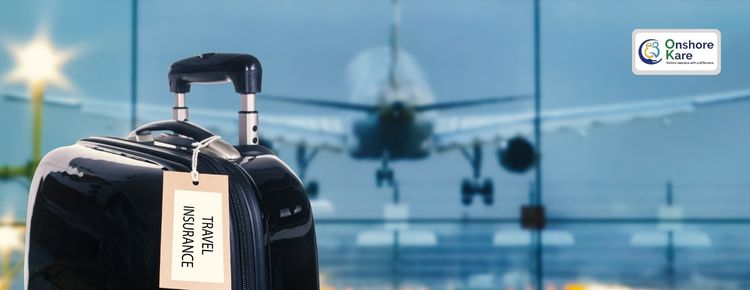
Find The Best Travel Insurance – Quick Guide To Coverage & Cost
When planning your next trip, explore the best travel insurance plans with the help of this guide. This guide breaks down what travel insurance typically covers, from trip interruption and medical emergencies to lost luggage, and helps you compare costs, and navigate the selection of the best policy for your unique travel needs.
You might wonder:
- Is travel insurance worth it?
- How does travel insurance work?
- What does travel insurance cover?
- How much does travel insurance cost?
Key Takeaways
- Travel insurance offers coverage for a variety of unexpected travel incidents, including trip cancellation, medical emergencies, lost luggage, and travel mishaps, but will generally not cover foreseeable events or changes of mind.
- The cost of travel insurance typically ranges from 4-10% of the total trip cost, with the specifics of coverage and needs varying; assessing trip costs, personal requirements, and exclusion clauses is vital before purchasing a policy.
- When selecting travel insurance, an early purchase can offer more benefits and coverage options like ‘Cancel For Any Reason’, while leveraging product comparison tools and understanding policy exclusions can aid in finding the best-suited insurance plan.
- Travel Insurance and Trip Insurance have differences and also overlaps. Trip Insurance primarily is a trip protection plan while travel insurance emphasizes medical coverage.

Travel insurance, an essential tool for any traveler, offers a broad spectrum of coverage, including international trip protection products. From trip cancellation policies to medical emergencies, and even lost luggage, travel insurance has got your back. Comprehensive travel insurance plans are beneficial, covering a range of needs including medical attention and protection for baggage and trip interruptions.
One of the key travel insurance benefits is the impact travel insurance coverages have on further enhancing the security and peace of mind of travelers, offering travel protection. It is highly recommended to purchase travel insurance before embarking on an international trip.
Keep in mind that insurance only applies to sudden and unexpected occurrences. For instance, coverage for foreseeable events like named storms may not be offered if purchased too late. With that said, let’s delve deeper into specific coverage types, starting with trip cancellation policies.
You can purchase travel insurance directly from travel insurance companies, or agents, from the place where you are buying your airline ticket, or from a travel insurance marketplace like OnshoreKare.
The advantage of buying from an online marketplace is that you can instantly compare travel insurance plans and purchase travel insurance that meets your specific needs.
Understanding Trip Cancellation Policies
Trip cancellation insurance is a major component of travel insurance, providing reimbursements for cancellations due to specific covered reasons. These reasons can include:
- Serious illness or injury to the insured traveler, a traveling companion, or a family member
- Natural disasters affecting the destination
- Job termination or layoff not due to the insured’s fault after at least 12 months of continuous employment
- Terrorist events at the destination within 30 days of arrival
Most policies, however, don’t provide coverage for cancellations due to travel alerts or warnings, or for any cancellations related to events or conditions that were known, anticipated, or reasonably predictable when booking. Compare Trip Insurance Plans
Medical Benefits While Abroad

When you’re exploring the world, the last thing you want is a medical emergency. Travel medical insurance policies are designed to cover expenses incurred from illness or injury during an international trip, including costs for:
- doctor visits
- hospital bills
- X-rays
- lab work
- medications
These expenses are covered up to a specified limit. Moreover, emergency medical evacuation insurance provides for transportation from remote areas or inadequate medical facilities to better-equipped medical centers, usually by airlift or ambulance, including coverage for various associated costs.
Awareness of coverage limitations is important, such as the exclusion of treatments for diseases during a CDC Level 3 travel warning, and for adventure sports participants who may need extra travel medical plans.
Travel Insurance – Popular Plans:
Popular plans to travel internationally from the USA
Popular Plans for Visitors to the USA
Popular Plans that cover Pre-existing Medical Conditions
Popular Travel Protection Plans
Note: Hop plans are travel protection aka trip assistance plans and not travel insurance plans.
Protection Against Travel Mishaps

Life is unpredictable, and travel is no exception. Missed connection coverage compensates travelers for extra costs resulting from missing a flight, cruise, or other scheduled transportation due to unforeseen events such as bad weather or an airline delay.
If a traveler misses their connection, the insurance may cover additional travel costs to join their trip as scheduled or reimburse unused, nonrefundable trip payments due to the mishap.
Travel delay coverage assists travelers by reimbursing expenses like meals, accommodations, and other incidental costs when their trip is postponed for covered reasons.
Moreover, baggage insurance offers compensation for luggage that is lost, damaged, or stolen, alleviating the financial burden of replacing necessary items during the trip.
Evaluating Your Trip Cost & Insurance Needs

Having grasped the fundamental concepts of travel insurance, you should now examine your requirements. Evaluating your trip costs and insurance needs is a crucial step in the process. These needs can be tailored to include:
- Trip cancellation
- Travel medical
- Emergency medical evacuation
- Repatriation of remains
- Accidental death and dismemberment
- Baggage loss
These should be matched to the trip’s specifics and the traveler’s situation.
The cost of trip insurance generally ranges from 4-10% of the total trip cost, meaning a $5,000 trip could result in an insurance cost of $200 to $500 based on the chosen coverage level.
Travel medical insurance costs can vary based on the
- age of the insured
- coverage duration
- destination
- type of plan viz. comprehensive or limited coverage
- policy maximum selected
- deductibles chosen
- pre-existing conditions coverage or acute onset of pre-existing conditions coverage
Compare travel insurance plans and costs.
It is also crucial for travelers to confirm whether their domestic health insurance plans cover medical emergencies internationally before traveling.
Understanding the extent of travel insurance coverage, including rental car insurance, is necessary to determine if additional policies are needed for international trips.
Assessing Total Trip Cost
The details matter in travel insurance, making it crucial to precisely compute your insurable trip cost. This includes:
- prepaid, non-refundable expenses such as airline tickets, cruise costs, hotels, tours, prepaid excursions, event tickets, and certain business trip costs
- The cost of insuring frequent flyer miles is not included in the insurable trip cost
- However, government taxes and fees associated with award tickets can be included.
To calculate the trip cost, include all non-refundable expenses that would result in financial loss if the trip is canceled, including those not prepaid but subject to cancellation charges.
The cost of a travel insurance plan and the eligibility for certain benefits are directly influenced by the insured trip cost, with some benefits requiring 100% of prepaid and non-refundable costs to be covered.
Tailoring Coverage to Your Travel Plans
Your travel insurance should fit your travel plans like a glove. For example:
- Single-trip travel insurance is designed to cover a journey from home to one or more destinations and back home, treating the entire journey as one trip.
- For frequent travelers, multi-trip travel insurance serves with an annual policy that covers multiple trips within a year, up to a certain number of days per trip.
- A multi-trip insurance plan can be cost-effective for those who travel frequently, eliminating the need to purchase separate coverage for each journey.
Medical evacuation coverage levels differ amongst plans, with top-tier options offering up to $1 million per person.
Selecting a travel insurance policy should focus on covering what is necessary, avoiding extra costs for coverage that isn’t needed.
Selecting The Best Travel Insurance Plan

Travel protection in the form of travel insurance is extremely critical. Selecting the best travel insurance plans can be tricky. After evaluating your travel needs and trip expenses, the subsequent move is to choose the most suitable travel insurance plan.
With countless providers and a myriad of plans, this can seem like a daunting task. However, with the right tools and information, it can be a breeze.
Here are the best travel insurance plans for 2024. Travel insurance plans vary greatly, with each offering unique coverage options tailored to different travel needs and budgets, necessitating careful comparison to find the best match.
To compare travel insurance plans, travelers can select the most suitable insurance plan by utilizing advanced recommendation engines and relying on customer-generated reviews to gauge the effectiveness of coverage options.
Customer care resources, including professional assistance, are available to help travelers determine the most appropriate trip insurance plan for their specific travel concerns.
It is crucial for travelers to thoroughly understand all aspects of their travel insurance agreement, with providers encouraging questions to ensure complete understanding and satisfaction.
Using A Product Comparison Tool
One effective way to navigate the multitude of travel insurance options is by using a travel insurance product comparison tool.
Comparing plans is made easy by online travel insurance comparison tools. It allows travelers to enter trip details once and receive multiple quotes for easy comparison, sorting, and filtering based on price, coverage options, and company ratings.
Comparison websites offer the following benefits:
- Guarantee the lowest price for a specific plan
- Provide instant confirmation of coverage and secure purchase options
- Advanced features such as pop-up lightboxes offer detailed information on benefits and exclusions
- Customer reviews support unbiased comparisons and consideration of provider ratings.
Consideration Of Policy Exclusions
While comparison tools can make the selection process easier, it’s also important to pay attention to policy exclusions. Travel insurance generally does not cover problems that were foreseeable before the coverage was purchased.
Policies typically exclude coverage for:
- accidents or injuries caused by intoxication or drug use
- epidemics and pandemics
- trip cancellations due to a change of mind or fear of flying
- terrorism coverage if a related travel advisory was issued within 6 months before the travel
Natural disasters such as named storms are not covered unless the policy was bought before the event became foreseeable, and most insurance plans will not cover activities like skiing unless a hazardous sports rider is purchased.
Travelers should thoroughly read and understand their policy’s fine print and consult licensed agents to clarify the exclusions to avoid unexpected gaps in coverage.
Timing Your Purchase For Optimal Coverage
Having covered the ‘what’ and ‘how’, we now turn to the ‘when’ of buying travel insurance. The moment you choose to purchase your insurance can greatly impact your coverage.
The best time to buy travel insurance with ‘Cancel for Any Reason’ coverage is within 15 days of the first trip deposit to be eligible. To ensure coverage for pre-existing medical conditions, a traveler must obtain a pre-existing medical condition exclusion waiver during the policy purchase.
Another important aspect of timing your purchase lies in the free look period. After purchasing a travel insurance policy, the traveler has 10 to 15 days during the free look period to review the policy details, understand coverage and exclusions, and cancel if the policy does not meet their requirements.
Early Purchase Advantages
Purchasing travel insurance shortly after the first trip deposit has several benefits:
- It maximizes the duration of coverage for potential trip cancellations.
- It ensures eligibility for optional upgrades like ‘Cancel For Any Reason’ (CFAR) and ‘Interruption For Any Reason’ (IFAR) coverages.
- Buying travel insurance within 15 days of booking a trip can lead to more benefits and eligibility for certain types of coverage.
However, waiting too long to buy travel insurance can result in losing eligibility for pre-existing medical condition exclusion waivers, which need to be purchased within a few weeks of the first trip deposit. Buying travel insurance early allows travelers to adjust their policies if their itinerary changes without losing coverage benefits.
Last-Minute Coverage Options
Even for the spur-of-the-moment travelers who book their trips at the eleventh hour, travel insurance options remain. Bear in mind, though, that policies secured closer to the departure date usually come with a heftier price tag. Last-minute travel insurance purchases may not include coverage for events that are already foreseeable, such as approaching hurricanes or known potential travel supplier bankruptcies.
Despite these limitations, last-minute travel insurance can still provide coverage for trip interruption, trip delay, emergency medical expenses, and medical evacuations.
For visitors to the USA, you can still buy travel medical insurance if you have already arrived in the USA and have not made a purchase of travel insurance from your home country.
The Impact Of Destination On Insurance Choices
Whether your itinerary involves a peaceful beach getaway or a daring hiking journey, your destination can greatly influence your insurance decisions. Travel advisories issued by organizations such as the CDC or the Department of State can have a significant influence on the scope of travel insurance coverage, with a particular impact on medical benefits.
If travelers choose to proceed to destinations with active advisories, it can lead to activation of certain insurance benefits if specific conditions are met, or conversely, some benefits may become void. Insurance coverage for natural disasters is commonly included in travel insurance policies; however, travelers need to verify any potential limitations or exclusions related to weather-driven advisories at their intended destinations.
Conflicts in certain regions can alter the range and accessibility of travel insurance coverages and benefits.
Healthcare is expensive in the USA and if you are considering visitor insurance your premiums will be relatively higher.
High-Risk Destinations And Coverage
For thrill-seekers planning to visit remote or high-risk areas, there are unique considerations when it comes to travel insurance. Medical evacuation insurance is important as it covers transport costs to a hospital offering definitive care, which can be exceedingly high, especially from remote locations. High-risk activities such as skiing, jet-skiing, mountain climbing, and deep-sea scuba diving are often excluded from coverage unless a sports and adventure add-on is purchased.
Analyzing the safety concerns, including the nature of any potential violence or health risks and destination advisories, is critical for travelers to understand the risks and ensure proper insurance coverage.
Rental Car Coverage Abroad
When renting a car abroad, you might need to consider additional rental insurance coverage for rental cars. Collision Damage Waivers (CDW) provided by rental companies abroad allow renters to avoid costs if the rental car is damaged or stolen, often without the hassle of dealing with insurance claims.
Certain countries like Italy require all foreign renters to include a CDW in their rental agreement, while others, such as Ireland, may place a hold on the renter’s credit card for the deductible amount if the CDW is declined.
Navigating The Claim Process
While having travel insurance is crucial, knowing how to maneuver through the claim process is an entirely different matter. Before filing a travel insurance claim, review your policy to ensure that your situation qualifies for a claim, and be aware of the deadlines to file, which typically range from 20 to 90 days from the covered loss.
Gather all required documentation such as receipts, medical bills, police reports, and thorough documentation of your loss to support your claim and demonstrate the financial loss. Submit your claim and documentation online for a faster review process and use available tools like a provider’s mobile app or website to file a claim, upload supporting documents, and track the status.
In the event of a denied claim, follow these steps:
- Examine the policy terms for potential errors.
- Consider providing additional documentation for clarification.
- Stay attentive to communications for any follow-up requests from the insurance company.
Be prepared that a travel insurance claim can be denied and you may need to follow up and engage with the travel insurance provider if the claim is genuine and legitimate with the incident being under the coverage terms of the policy.
Unique Situations And Supplementary Coverages
Travel insurance does not provide a universal solution. Supplementary coverage may be necessary depending on your specific circumstances. Travelers should verify their home insurance coverage for personal property lost or stolen during a trip, as it may cover items like jewelry and collectibles, but additional coverage might be needed for expensive items.
Medical evacuation insurance includes coverage for repatriation of remains, and taking care of expenses associated with transporting remains back home in case of death during the trip.
Adventure Sports And Special Activities
For those planning to participate in adventure sports or special activities, having the right insurance is crucial. Travelers should review insurance policies for limitations or exclusions, particularly for activities considered dangerous by insurers. Illegal or dangerous activities, including those undertaken without a valid license, are not covered by travel insurance.
A hazardous sports rider may be required to cover injuries sustained during high-risk activities typically excluded in standard policies, such as paragliding, rock climbing, and skiing.
Business Travel Insurance
For companies that frequently send employees on business trips, investing in business travel insurance can be beneficial.
A comprehensive business travel policy can protect a company from large financial losses due to changed or interrupted plans or disasters.
Moreover, business travel insurance can serve as a valuable employee benefit, showing care for employees’ welfare and potentially attracting and retaining top talent.
A multi-trip travel insurance can be a cost-effective method for frequent travelers. Atlas MultiTrip is a popular plan for this purpose.
Companies can choose to pay for business travel insurance outright or have employees purchase coverage on a per-trip basis and get reimbursed.
Ensuring Reputable Service: Better Business Bureau & Reviews
Securing a reliable service is fundamental when dealing with travel insurance. Better Business Bureau accreditation (BBB) is significant for travel insurance companies as it assures consumers of ethical business practices and trustworthiness in protecting travel investments. Travel insurance companies are evaluated by the BBB, with some receiving an A+ ranking, demonstrating a commitment to honest and ethical service.
To verify a travel insurance company’s BBB accreditation, consumers should research the company on BBB.org, where complaints and customer reviews can also be found. Using comparison tools featuring customer reviews and ratings can aid travelers in making educated decisions about insurance providers.
Summary
In conclusion, travel insurance is an essential investment for any traveler. From understanding various types of coverage to evaluating your own needs and trip specifics to selecting the best plan, every step is crucial. The timing of your purchase, the impact of your destination on insurance choices, and even the unique situations and supplementary coverages also play a pivotal role in ensuring you have the best travel insurance plan. Remember to check the company’s reputation and reviews before making a final decision. Happy travels!
Frequently Asked Questions
Which insurance is best for international travel?
You should consider researching the top international travel insurance plans to find the best option for your trip. Travelers to the USA can explore these top travel insurance options for visitor coverage. If you are traveling to multiple destinations ensure that the plan covers all the countries in your itinerary.
What does travel insurance typically cover?
Travel insurance typically covers trip interruption, medical emergencies, travel delays, missed connections, and lost baggage. It provides comprehensive protection for various unforeseen events during your trip.
What does trip insurance typically cover?
Depending on the type of trip insurance they generally cover your financial investment in the trip. Trip insurance benefits may also include an add-on option to cover the non-refundable portion of tickets being reimbursed anywhere between 50-75%. Trip insurance is a good form of travel protection from a financial perspective with additional benefits of the medical expenses being covered.
When is the best time to buy travel insurance?
The best time to buy trip insurance, particularly with ‘Cancel for Any Reason’ coverage, is within 10 to 15 days of making the first trip deposit. This maximizes your coverage and provides you with the most benefits.
For a travel medical insurance policy you can generally buy in advance even after reaching your destination (like the USA). However, it is generally recommended to buy at least before your travel dates to ensure the insurance policy is effective when you leave your home country.
What can affect my travel insurance choice?
Your travel insurance policy choice can be affected by factors like travel plans and possible changes, your destination, the timing of purchase, and your unique situation. Consider these carefully before making a decision. Travel protection offered by an insurance policy from a reputed travel insurance company is important, you can check for details on the travel insurance company on sites like Trustpilot and Google reviews to see ratings their customers have given them.
How do I navigate the travel insurance claim process?
To navigate the travel insurance claim process, start by reviewing your policy, gathering the necessary documentation, and submitting your claim online. In case your claim is denied, you can file an appeal. Stay alert for communications from the insurance company to ensure a smooth process.


